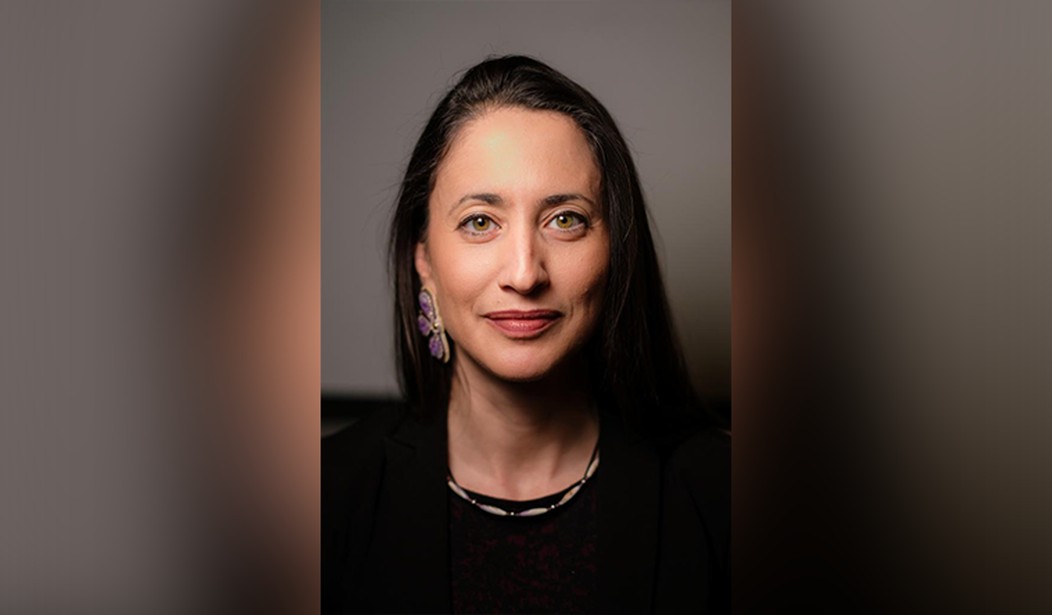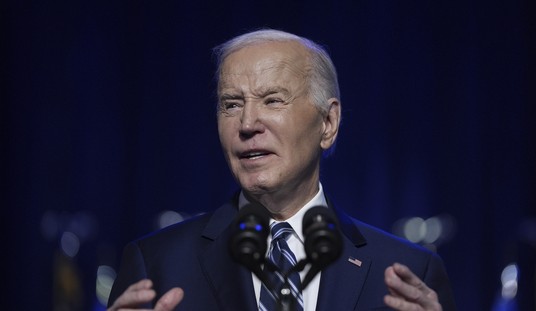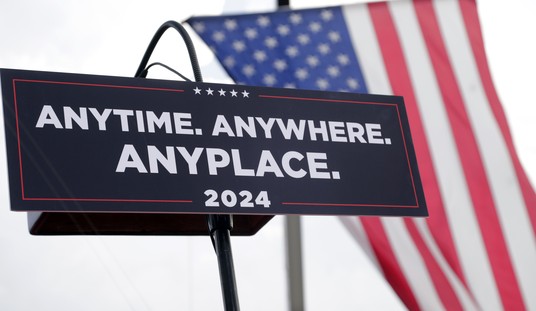Her name is Elizabeth Hoover and she was apparently raised in the belief that she had Native ancestry on both her father and mother's side of the family. But Hoover would eventually make her way to some of America's top schools where she studied anthropology and did work on identifying Native Americans. During this time she presented herself as Native which made her more attractive to college administrators looking for an authentic voice to teach ethnic studies.
And then last year Hoover announced that she was actually white and had no Native ancestry that she or anyone else could confirm. She was a Pretendian, the name given to people who fake native ancestry. Karen wrote about her announcement last May when it happened.
Monday the New Yorker published the results of a 9-month investigation by Jay Caspian Kang. What Kang found is evidence that Hoover's story about her ancestry had changed over the years in ways that suggest she may have known she was lying at least part of the time she was benefitting from her identity in academia. One of the things the article makes clear is just how common Pretendians are in academia.
In just the past few years, several scholars have been accused of being Pretendians, including Mary Ellen Turpel-Lafond, a former judge and law professor in Canada who has said that her father was Cree, and Qwo-Li Driskill, a professor of gender and queer studies at Oregon State University who claims to have Cherokee, Lenape, Lumbee, and Osage heritage. (Turpel-Lafond denied the accusation, in 2022; Driskill’s attorney characterized the accusation against his client as intrusive and false.) Ward Churchill, one of the country’s best-known Native-studies scholars, has been accused, throughout his career, of telling false stories about his Cherokee ancestry; when asked for proof of it, he claimed that such inquiries were the tools of colonialism. In January, 2023, Andrea Smith, a major figure in the field of ethnic studies, agreed to resign from the University of California, Riverside, effective this August, following questions about the veracity of her Cherokee heritage. (Both Churchill and Smith deny lying about their identities.)
There are likely many other cases. Kim TallBear, an enrolled member of the Sisseton-Wahpeton Oyate tribe and a professor of Native studies at the University of Alberta, guesses that a quarter of those who have checked the box for Native American in the academy are what she calls “self-Indigenizers,” people who either invent a Native heritage wholesale or play up a tenuous connection. “Most of the cases haven’t been made very public yet,” TallBear said.
Conspicuously not mentioned in this list: Sen. Elizabeth Warren. Warren claimed for years she had Native American ancestry and checked the box to mark herself as Native American on EEOC forms she filled out at Harvard and elsewhere. People involved in the hiring have come forward to claim Warren's claim of Native heritage had nothing to do with her hiring at Harvard so Sen. Warren has gotten away with the claim that her lies about her heritage were incidental to her success.
Elizabeth Hoover's lies were not incidental to her academic success. Hoover went from Williams College to Brown where she pursued her Ph.D. and eventually to Berkeley where she is still a professor. Along the way she always presented herself as Native American.
Early in her time at Brown, [Professor Evelyn] Hu-DeHart remembers noticing a striking young woman who wore beaded earrings and hung around with the kids in a Native American student group. Hoover “figured out very early how to project her Native American identity,” Hu-DeHart told me, noting that many Native people can pass for white. (“They don’t necessarily have physical features or even a skin color that immediately marks them,” she said.) She added, of Hoover, “At Brown, she organized an annual powwow. We brought in drums from the different tribes around. We had dancers, and Liz would always have a beautiful regalia, gowns, and beautiful beaded jewelry.” The ethnic-studies department did not have a full-time Native American faculty member, a fact that weighed on Hu-DeHart. The university eventually began a job search for a Native-studies scholar. In the meantime, Hu-DeHart asked Hoover to serve as a graduate instructor for an introductory Native-studies course that Hu-DeHart planned to offer...
Hoover continued introducing herself to other Native American academics, one of whom became suspicious about her vague explanations of her ancestry.
Audra Simpson, an anthropology professor at Columbia and a member of the Mohawk Nation at Kahnawà:ke, met Hoover at a Native-studies conference...
Simpson began asking about Hoover’s family, as she would any Native person with overlapping heritage. “I’m looking to make a connection,” Simpson explained to me. “I’m looking to find out if we’re related, because if you claim that you’re from Kahnawà:ke then you’re potentially related to me somehow. There’s so few of us.” Hoover gave her the name Brooks. Simpson thought she must have misheard. It wasn’t a name she knew.
Over the years, Simpson occasionally heard about Hoover and spoke with other academics who had noticed the vague way that Hoover talked about her ancestry. Simpson was also slightly suspicious of Hoover on account of the volume of beadwork and Native American signifiers that she was known to wear. (Hoover insists that this is exaggerated, but others described her in a similar fashion. “It looked like an Etsy shop exploded on her,” Simpson said.) On a visit to Kahnawà:ke, Simpson asked around to learn if there was a family named Brooks. There was. “It’s a tiny, tiny family,” Simpson told me. “There were two people still alive.” She asked cousins of the family if Elizabeth Hoover was related to them. “Nobody had ever heard of her,” Simpson said. The next time she saw Hoover, at an American Anthropological Association event, she asked her a direct question: “Who are you?”
“I was not warm,” Simpson recalled. “She looked at me like a deer in the headlights and then she sort of scuttled away.”
But it seems the beads worked out for Hoover. Brown University was having a hard time filling the slot for a Native-studies professor. There's a vignette in the story about a candidate for the job who showed up in a three-piece suit with a distinctive tie. The interviewers asked him about the tie, expecting to hear that the pattern had some connection to his heritage. Instead he responded that he'd picked it up at Barney's, a men's wear store that closed its last locations in 2020. He didn't get the job. But Hoover always made an effort to present herself in ways that felt authentic even if they weren't. She eventually got the job.
In [Graduate Fellow Annette] Rodriguez’s view, Hoover was performing a kind of fantasy of the Native scholar for the non-Native faculty around her—she was what they wanted to see. “She got grants, and she got fellowships, and she checked boxes, and she got positions,” Rodriguez said. “And so she exploited the system. But I think the system also was very happy to have her as the visible Native.”
There have been calls for Hoover's resignation since her announcements that she has no actual Native American heritage but Hoover seems intent on sticking it out at Berkeley. In fact, she has claimed her work is still valid and doesn't deserve to be canceled.
Although Hoover has support from some professors, the leadership of her department has turned against her. When the current school year started, two of her three graduate students refused to work with her. One of them, a Native student, had put aside community work to study at Berkeley with Hoover’s encouragement. She has switched advisers. As Hoover’s own career demonstrates, mentorship is crucial to academic success.
“I’m not going to be driven out, because I still have usefulness,” Hoover told me. “I still did all that work. I did the research, I did all the learning, I did the teaching. And I’m not going to have all of that just cancelled and thrown away because people are upset about this.”
I think if Hoover were working in a scientific field or engineering she would have a good point. What difference would it make that she'd lied if she could still do the work? But in the case of her career, her entire history seems tied up with her false identity. She benefitted not just from the work she did but from the way she presented herself. If that presentation was a fraud then Brown probably should have hired the guy in the three-piece suit. Going forward, maybe ethnic studies departments really should focus more on academic merit and less on racial identity and "lived experience." But good luck convincing the army of DEI administrators who now run these schools to do that.








Join the conversation as a VIP Member